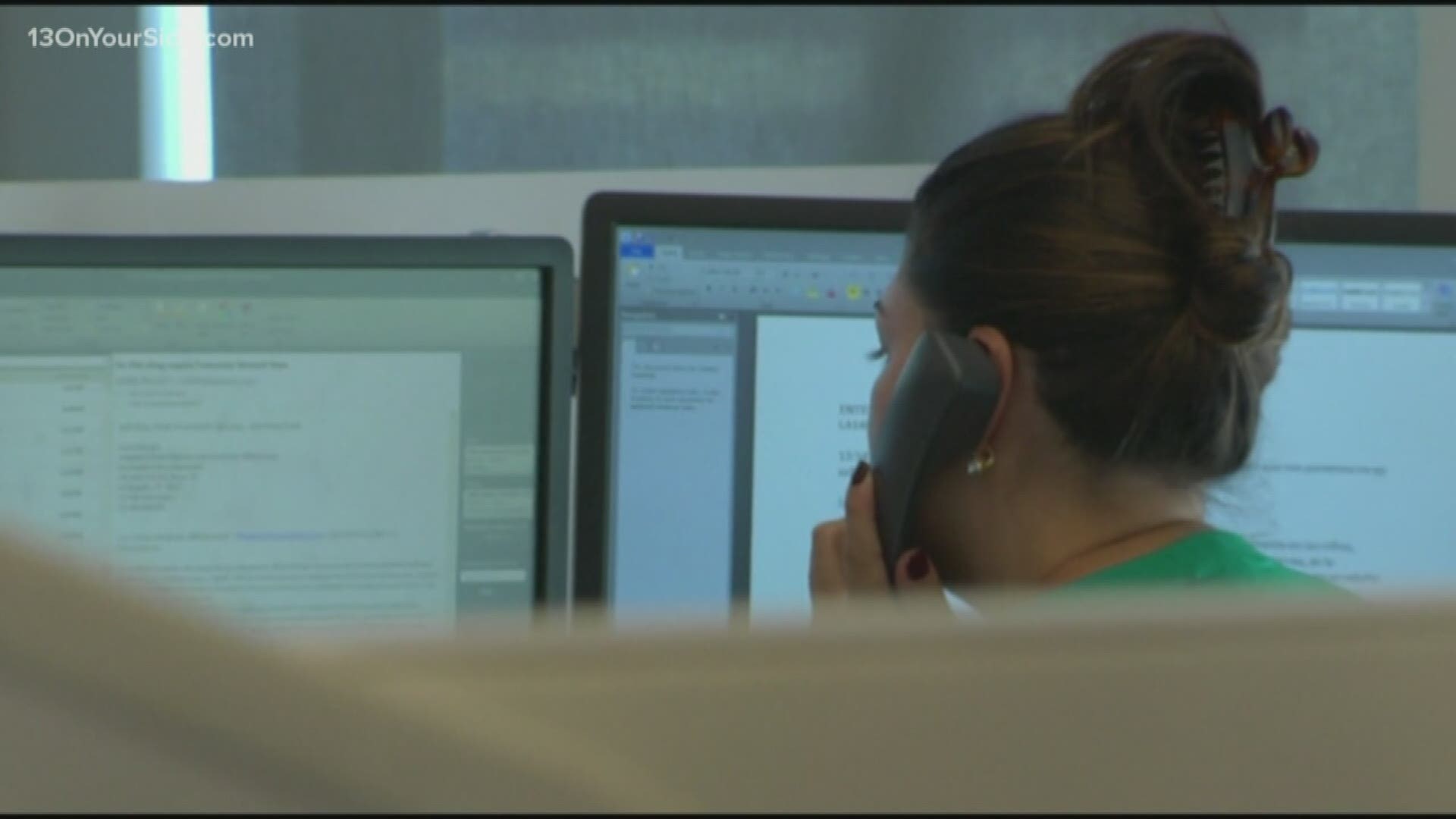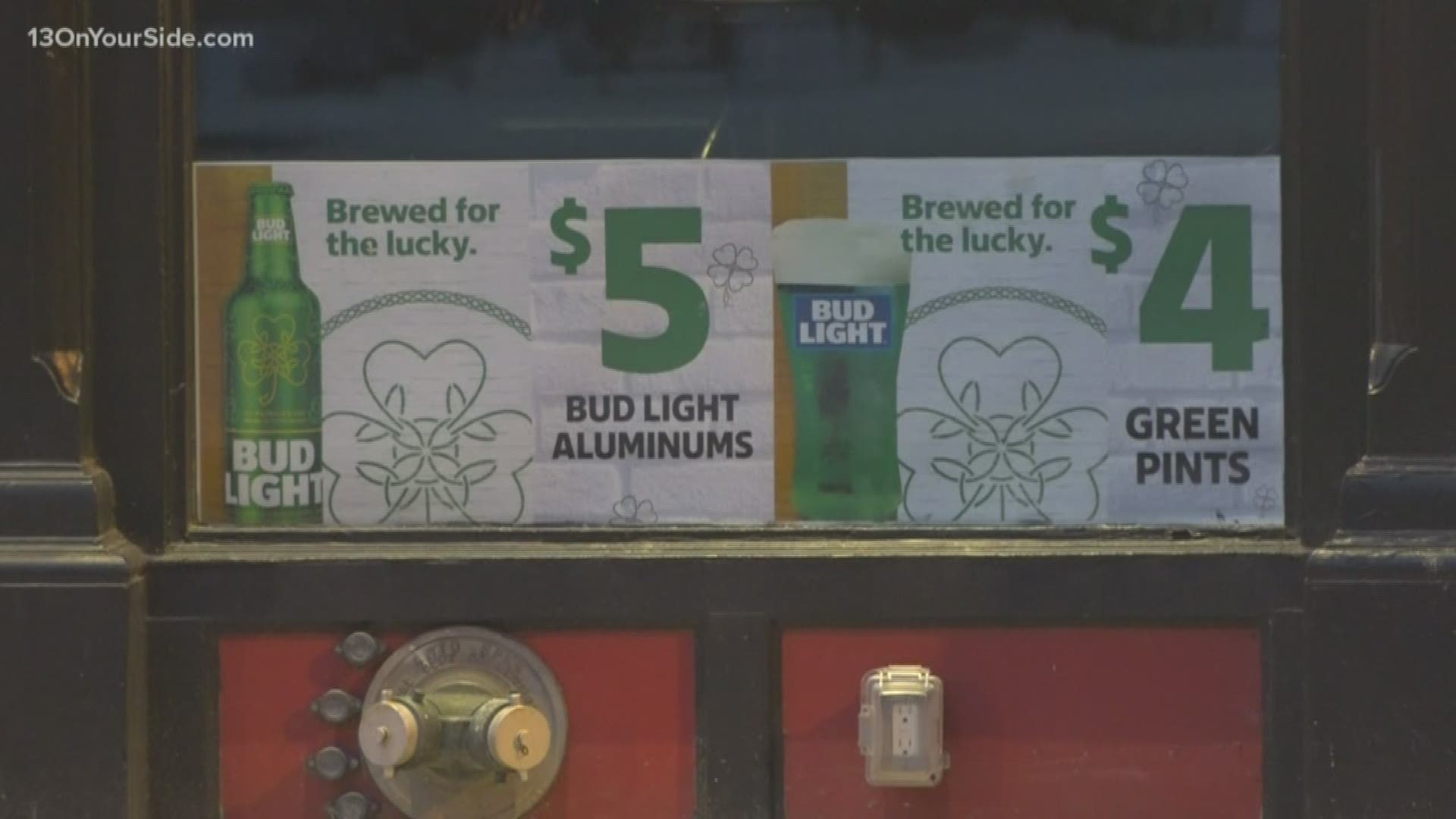GRAND RAPIDS, Mich — Restaurants and bars have shut their doors after an order from Gov. Gretchen Whitmer, and they are among the businesses most likely to suffer over the next few months.
"Over the course of the last few days we've gotten better information about how the United States and Michigan are going to respond, as well as information about what happened to economies in the other countries as they went through this," said economics professor Dr. Paul Isley from the Siedman College of Business at Grand Valley State University.
Isley says a recession is almost certain, but he believes it won't be as bad as what our country and state experienced more than a decade ago. He says this recession is likely to be two or three times smaller. That said, some industries will be harder hit than others.
Who will be worst off?
"We see entertainment, arts, food service, and transportation being affected very negatively and very steeply. For the economy as a whole, that's going to be a relatively small effect because that's only five percent of our economy here in West Michigan."
Isley says economists are also seeing a few supply chain hiccups that are slowing down certain parts of the manufacturing industry.
"When we start adding that all together, we see about a $1.2 billion to $2 billion withdraw from the Michigan economy over the next few months and that will slow us down two to three percentage points from what we were going to do."
Mental notes for all
How a recession would affect you depends on a number of factors including what industry you work in. But Isley says there are certain things everyone can keep in mind in the days, weeks, and months ahead.
"Supply chains in the United States are under stress, but in general there's plenty of product out there for people."
In other words, there's no need to hoard. Store shelves will get re-stocked.
"The stock market is not the economy. There's going to be a lot of volatility. There's going to be a lot of ups and a lot of downs in that market for awhile. It's going to be really scary to watch. We do know historically, though, that when we get to a point where we understand how bad it's going to be or how good it's going to be, that market stabilizes and starts to rise again."
Where do these predictions come from?
Isley and other economists are analyzing models and trying to learn from what has already happened in other areas affected by coronavirus.
"We're looking at some of the worst cases that might happen, like using numbers from Wuhan, China," he said.
The problem, just like in the medical field, is that this is a new virus and there are some questions yet to be answered.
"We can be pretty accurate about some things. Our problem with this particular set of modeling is that we're dealing with a virus on a scale that we haven't seen in a modern, integrated supply chain. So it creates more complexity and it creates many more places where there might be an error in the model.
"We can say that the things we know about like the closing of schools, the closing of bars and restaurants, the cancellations we've seen in conferences and conventions, we can monetize that. We're very good at that. And we already know that's deep enough to cause a recession."
What's the big takeaway?
Isley is trying to calm any fear people might be having about these latest numbers.
"Although it looks like we're moving into a recession, and that's highly likely at this point, that recession is going to be shallow enough that there will be enough money here to help the people that are hurting, if the government can do that."
RELATED VIDEO:
More stories on 13 ON YOUR SIDE:
►Make it easy to keep up to date with more stories like this. Download the 13 ON YOUR SIDE app now.
Have a news tip? Email news@13onyourside.com, visit our Facebook page or Twitter. Subscribe to our YouTube channel.


